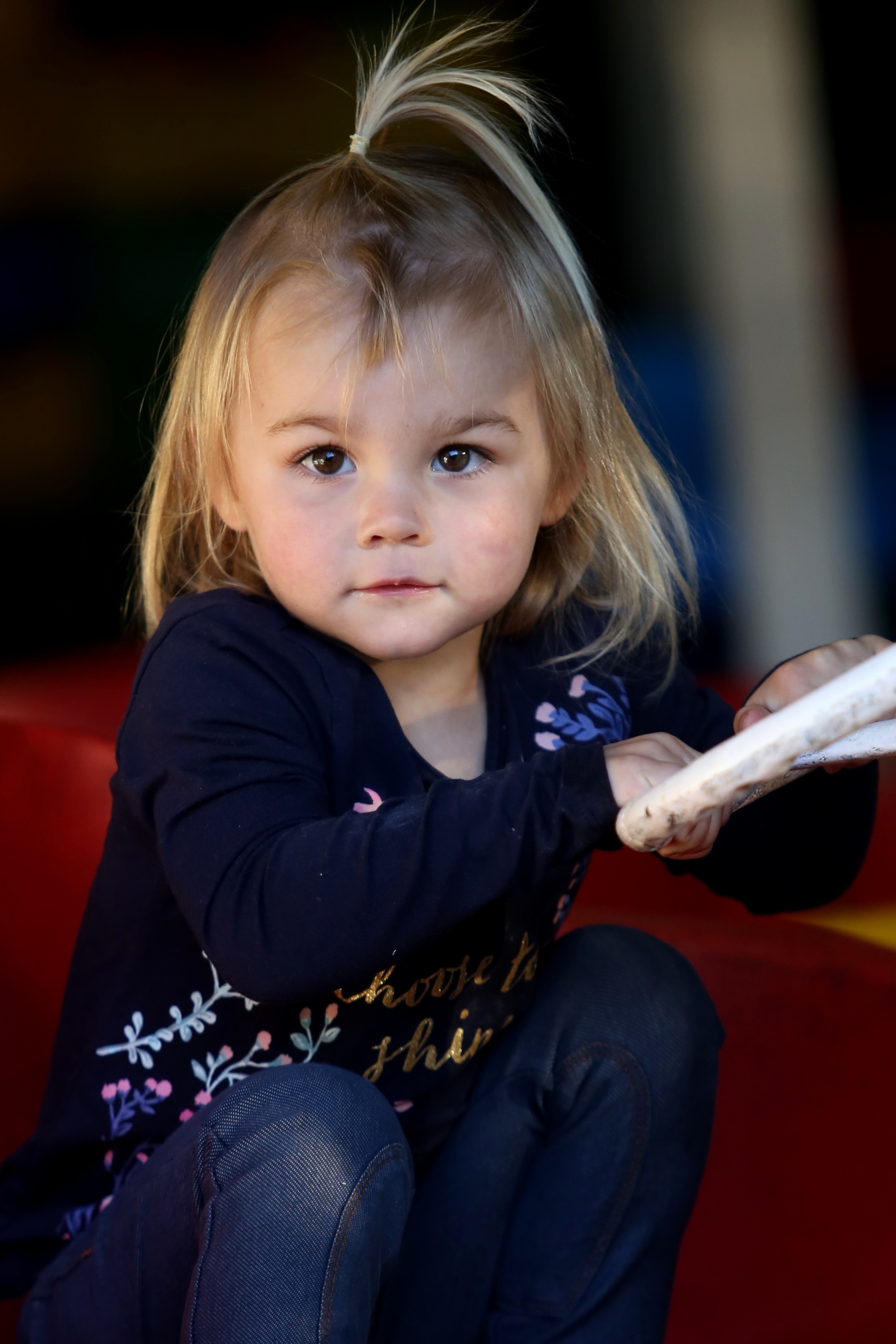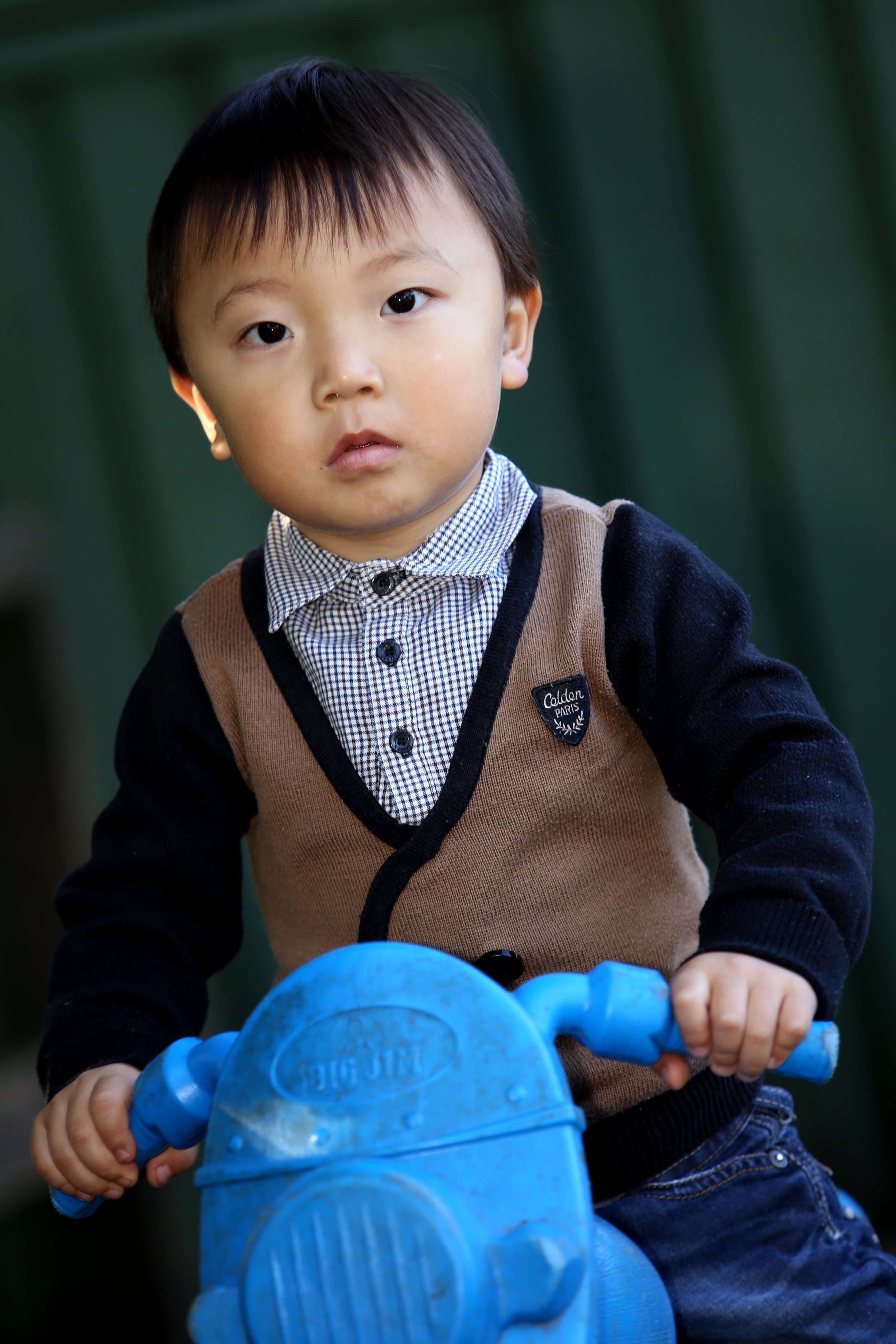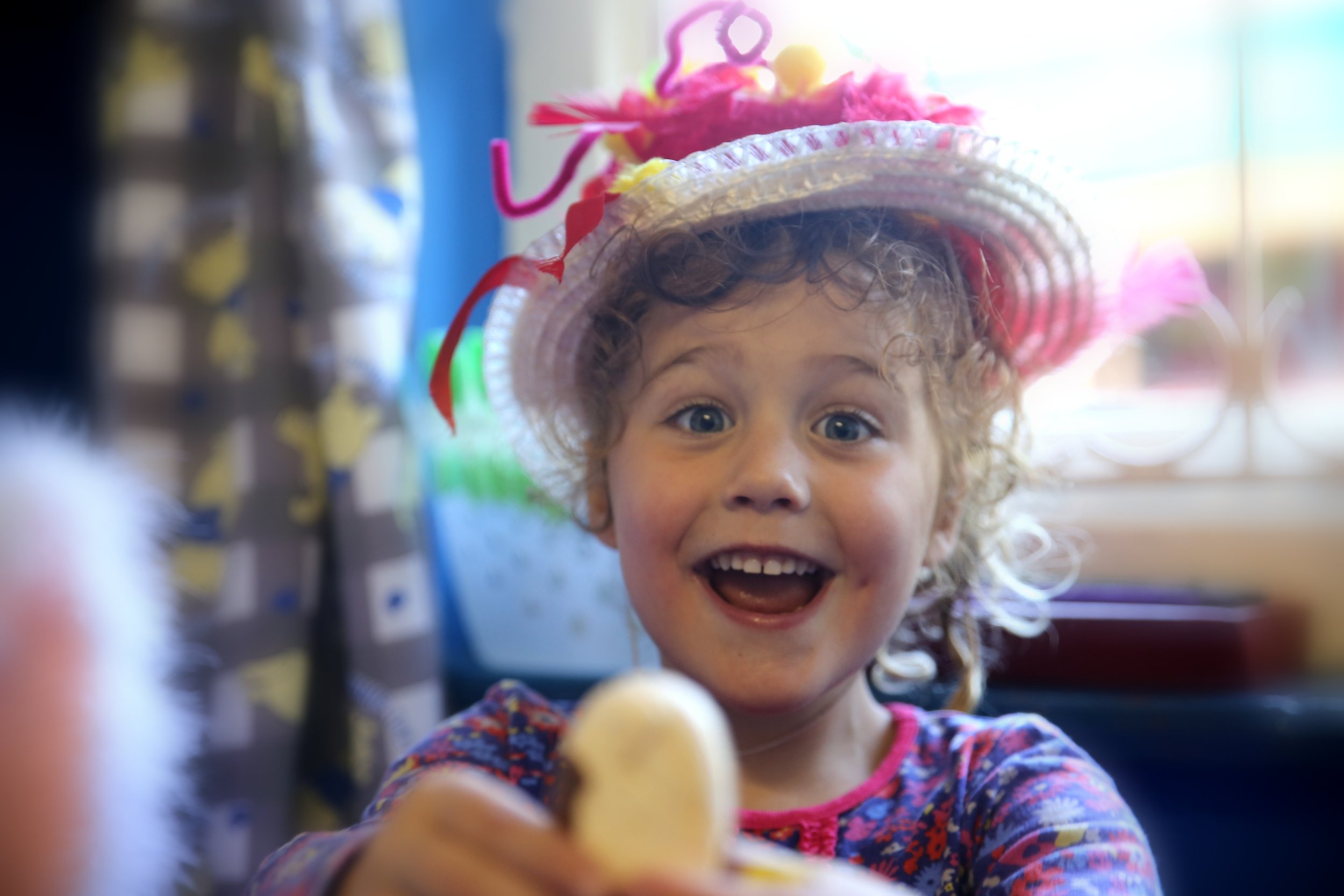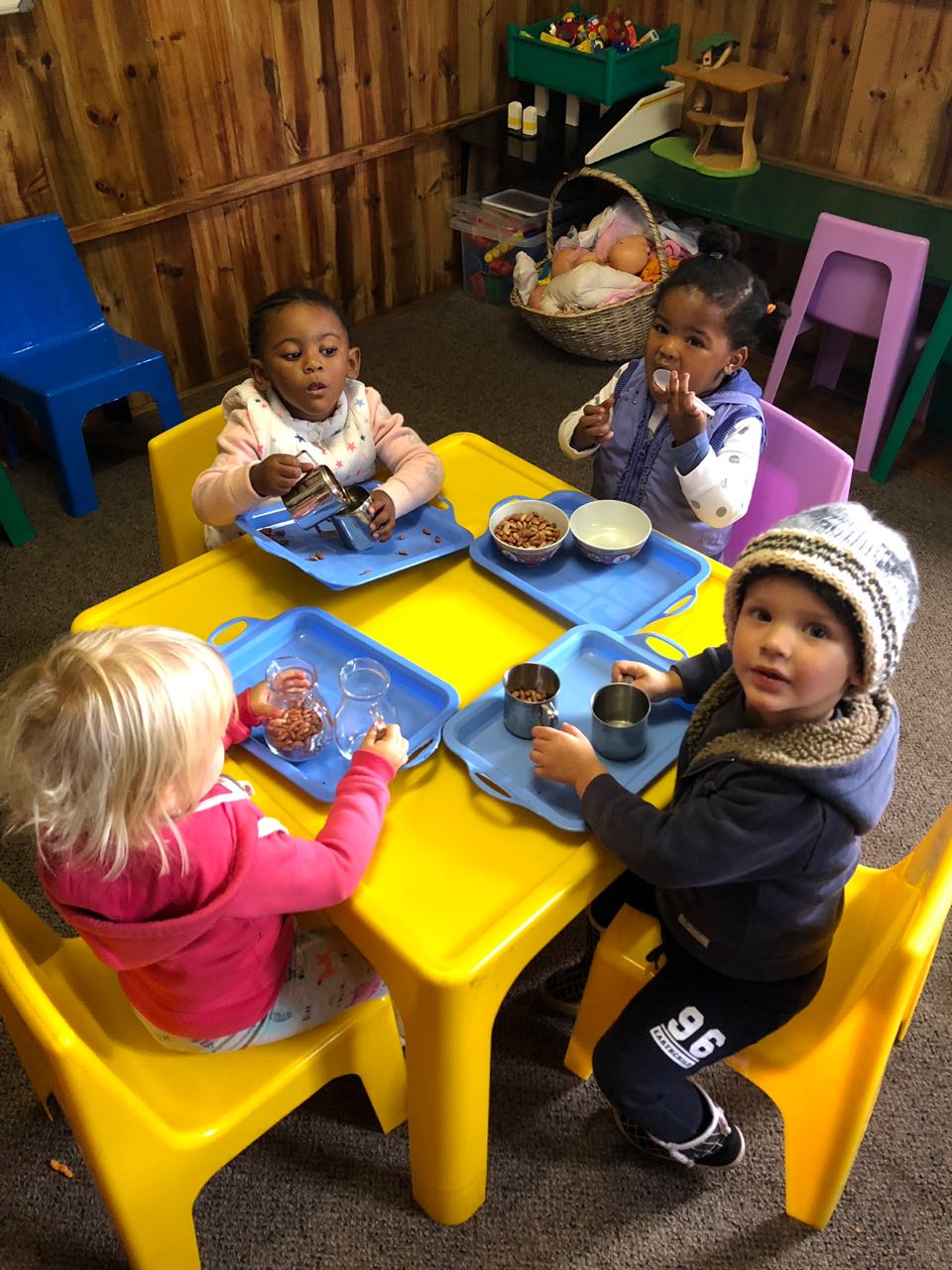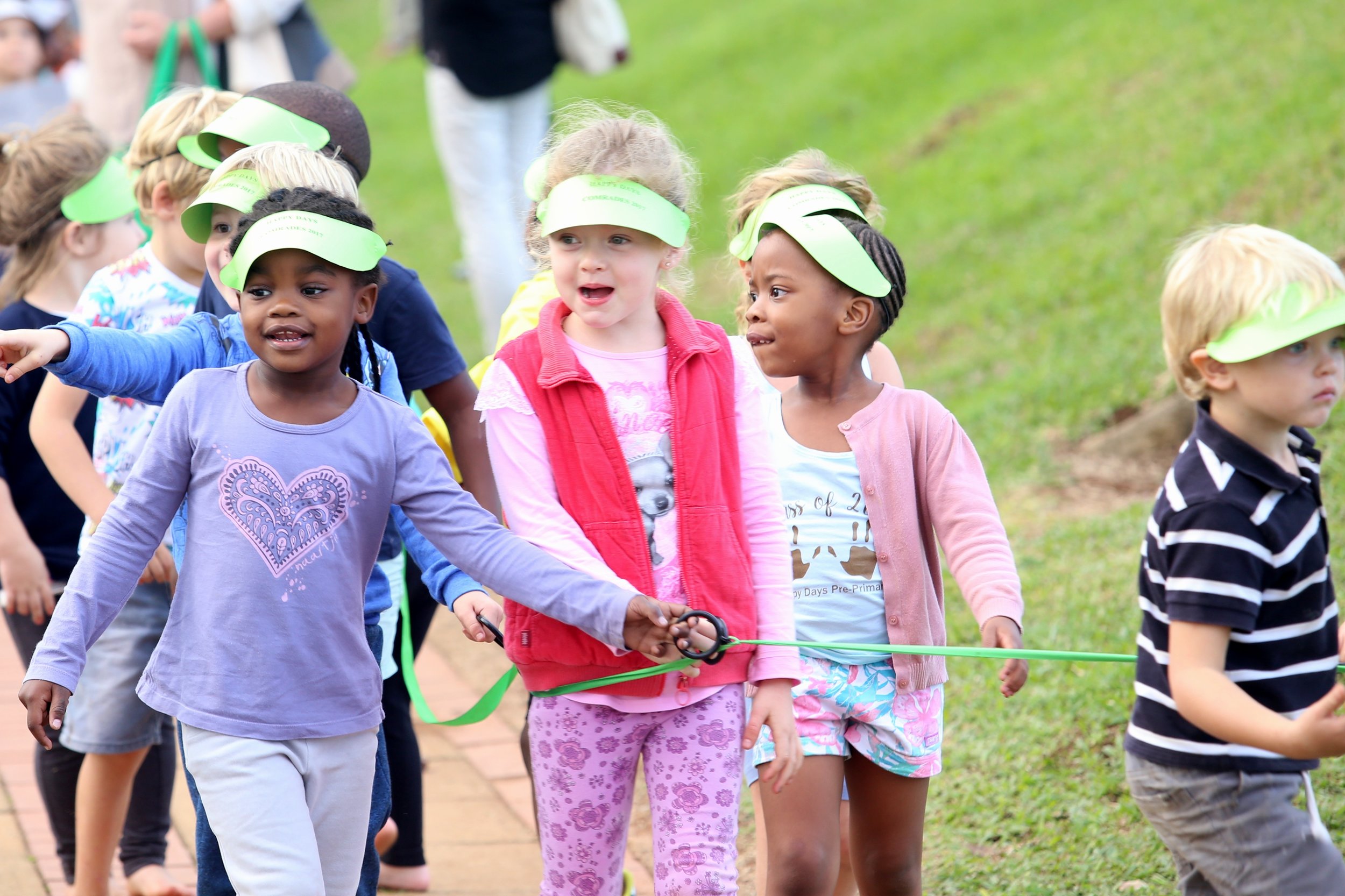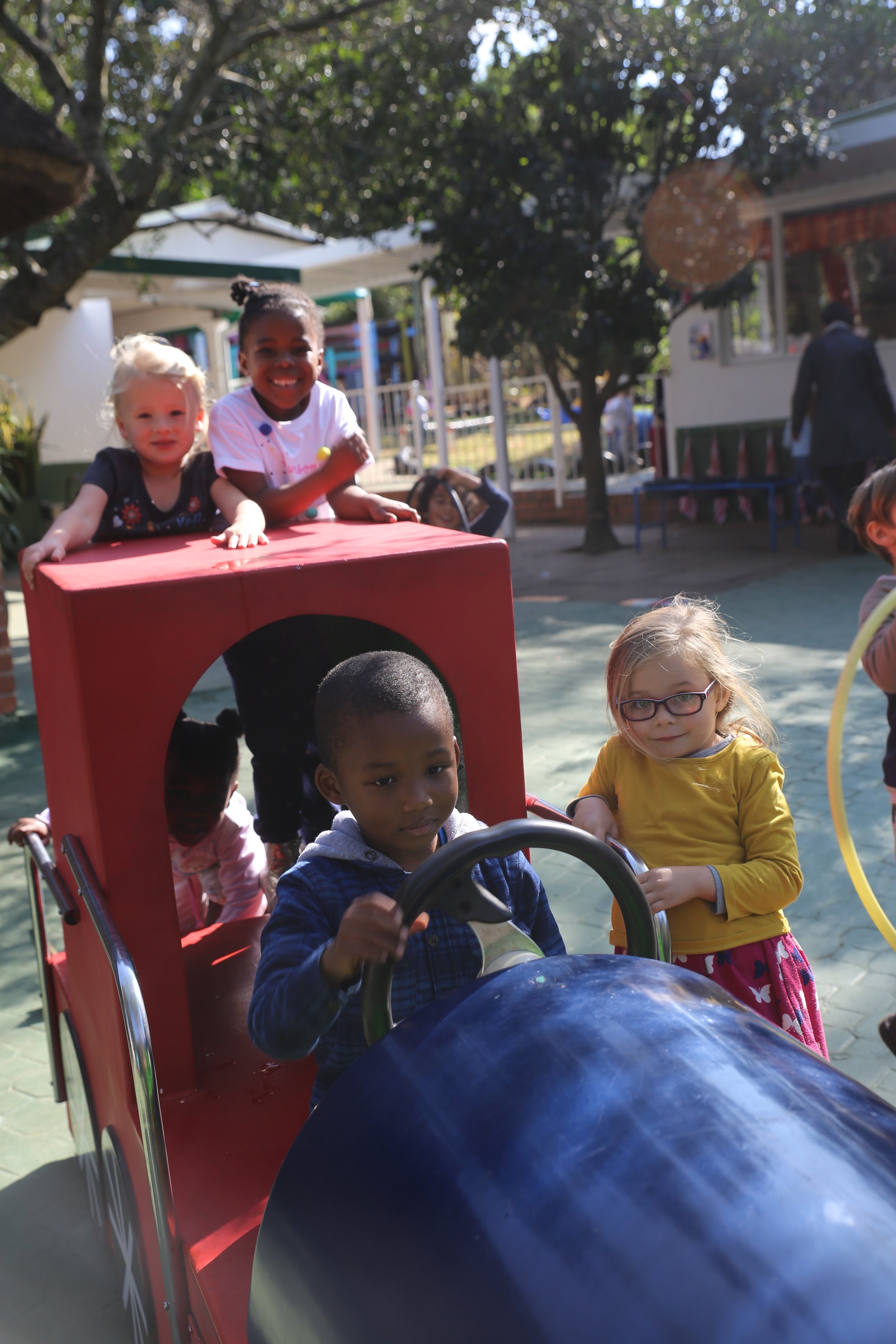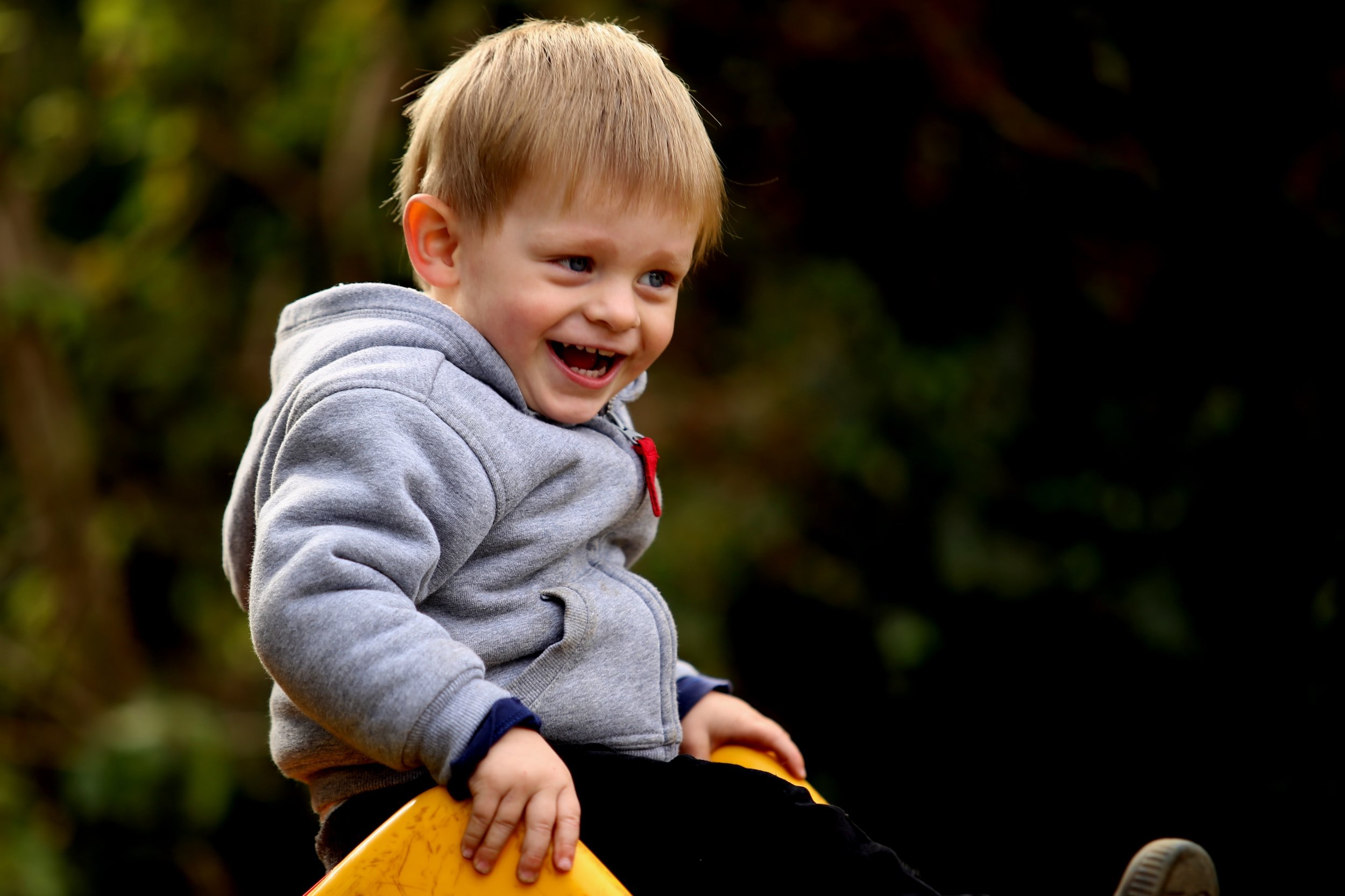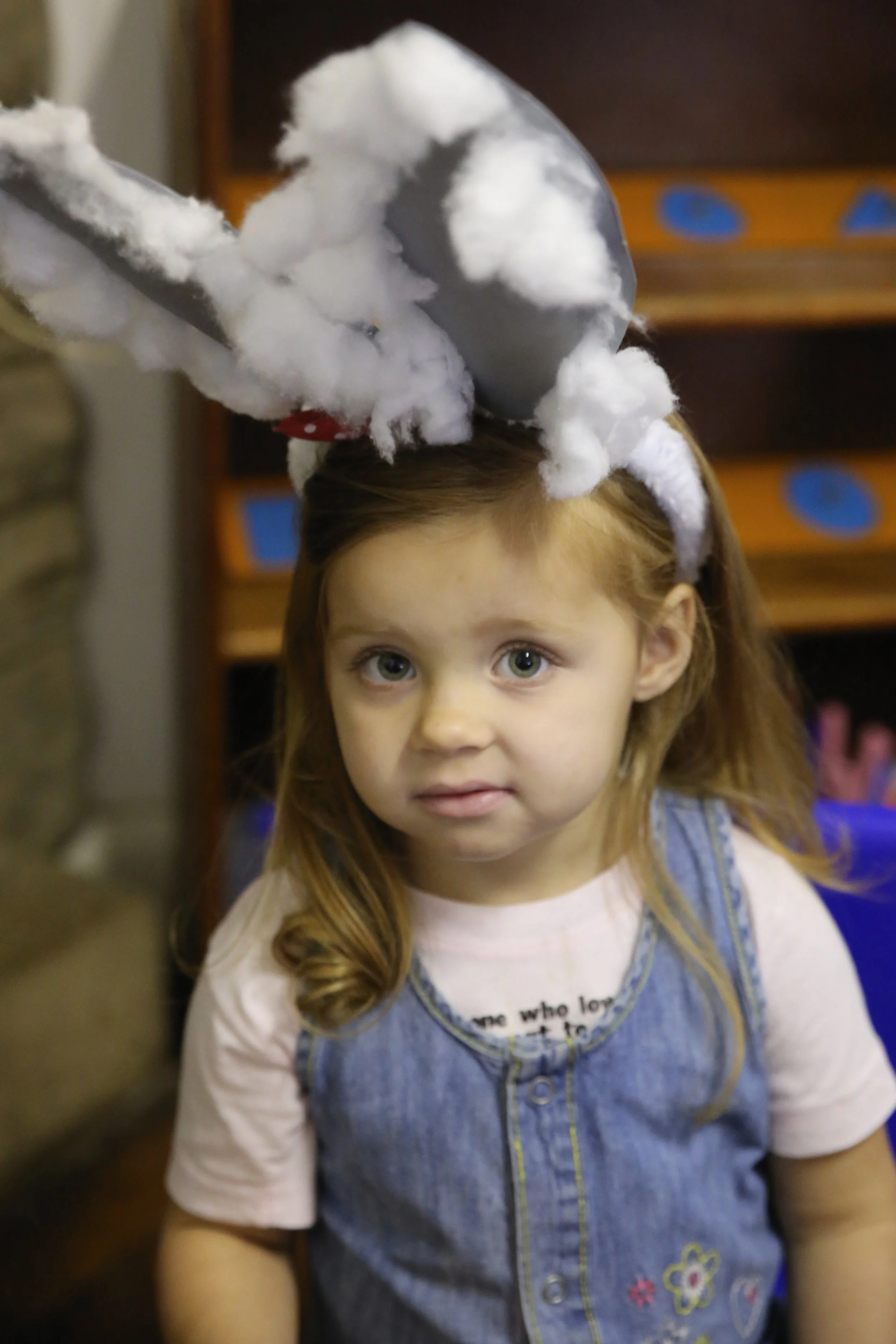“Children are not a distraction from more important work; they are the most important work.”
Curriculum
Happy Days teaches the Government prescribed National Curriculum by covering the work in various themes. Alongside this, we also incorporate creative ways of teaching which make learning more enjoyable for the children:
Outdoor Play
We have extensive play equipment and encourage the children to utilise our wonderful playground. From jungle gyms to plastic motor bikes, these are all so important when developing the children’s large motor skills and bilateral integration.
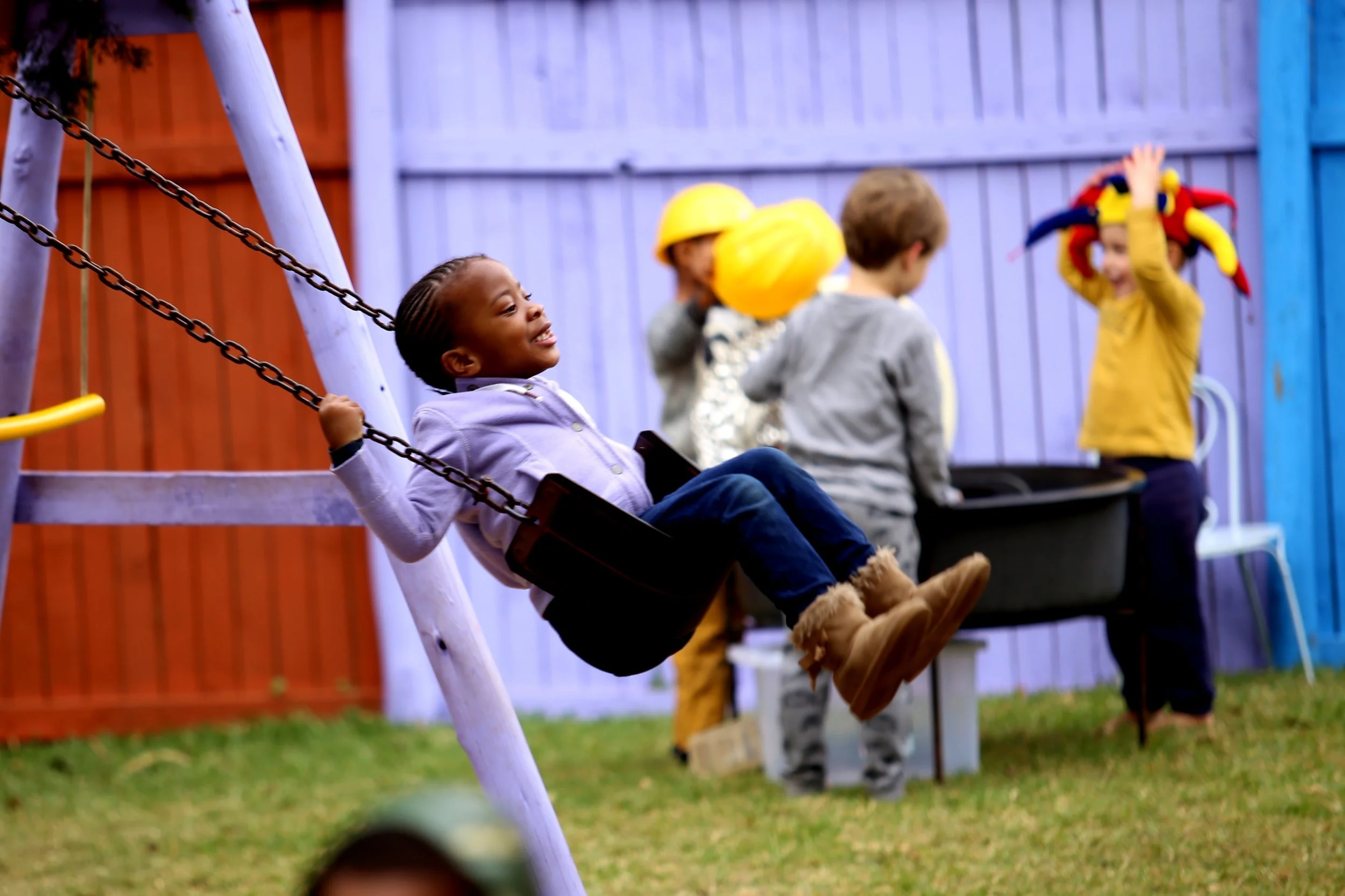
The Montessori Method
Our programme covers the following curriculum areas
Practical Life Materials – this area develops skills for day-to-day living, manual dexterity, hand-eye co-ordination, hand-wrist dexterity, concentration, self-discipline and most importantly, independence.
Sensorial Materials - sensory discrimination is crucial for all learning and this refines the children's five senses. This area teaches classification, seriation and sequencing – all required for critical thinking.
Literacy Materials - learn to associate letter shapes and sounds and build their own words, forming a foundation for reading and writing. Stories and rhymes are also included, thus enriching vocabulary, comprehension and conversation.
Mathematics Material - develops the understanding of quantities and numerals, patterns and problem-solving, making a perfect foundation.
Knowledge and Understanding of the World - teaching children about the world, history, geography, people, cultures, religions and nature. This enhances the child’s desire to learn and question – developing their thirst for knowledge.

Audiblox
Audiblox uses various visual and auditory exercises in order to further develop the children’s mental potential – thinking, memory, counting, listening skills, sequencing, left and right and spatial perception.
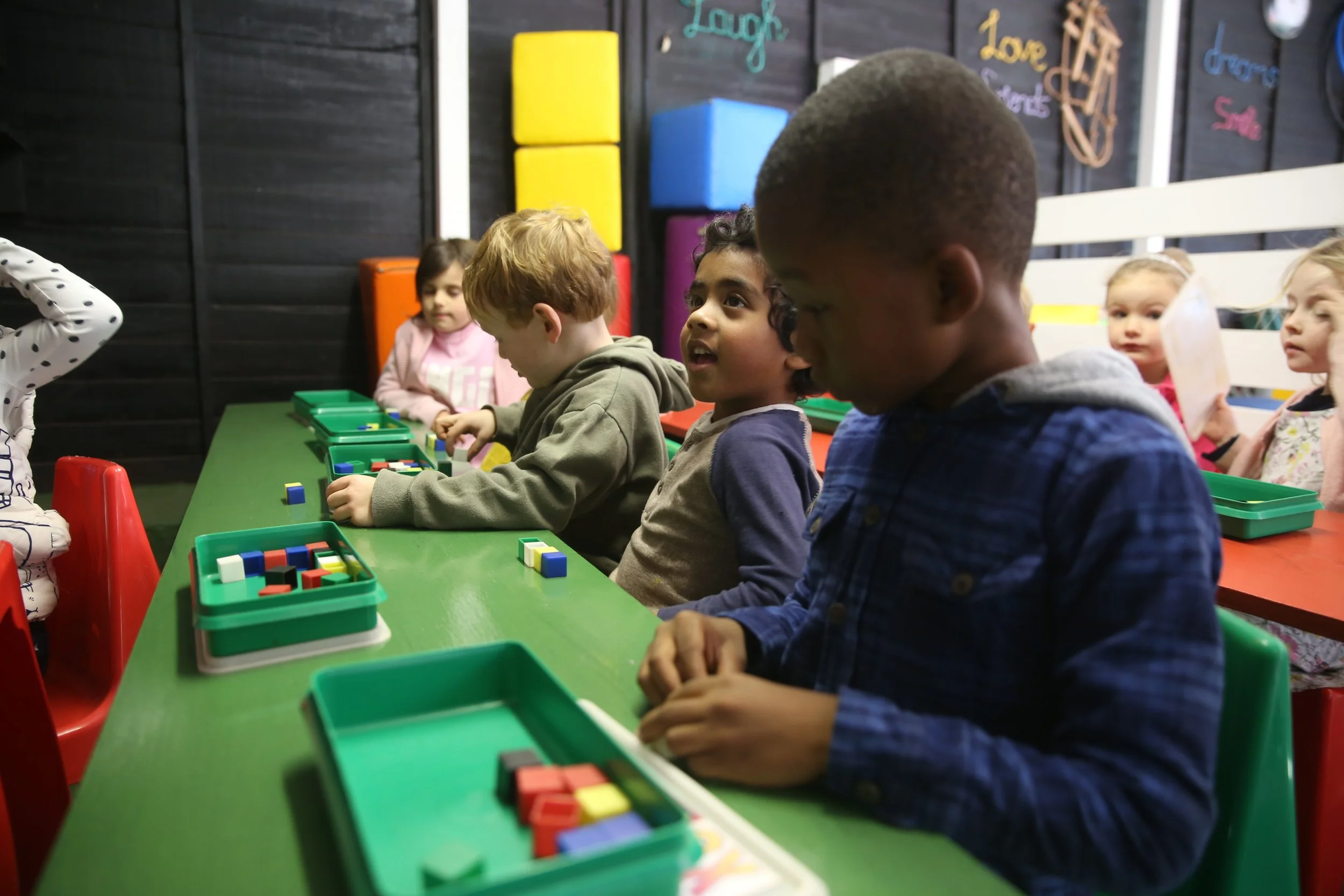
Interactive Smart Board
In February 2015, Happy Days Pre-Primary invested in an Interactive Smart Board, an innovative way of teaching. The children engage and interact with fun, theme-based activities by physically touching the board. They are introduced to interactive games, phonetic language, learning songs, nursery rhymes, numeracy and early mathematical concepts.

Letters and Sound Programme
This curriculum consists of fun sessions involving speaking, listening and games, all carried out on the Smart Board. This process of learning improves a child’s verbal ability, their general knowledge, memory and their social interaction.

Listening Skills
The children are given formal Listening Skills where they are given an instruction and expected to complete it correctly. These are graded according to each age group. Listening is vital for all formal schooling.

Art
Art activities are done using various materials, usually linked to the theme that the children are learning. We believe that art enhances the child’s confidence and their need to express themselves freely.
Once a year our children create a special piece of art which is then showcased to the parents at a cheese and wine evening.

Busyballers
Busyballers is a sport programme that focuses on introducing the children to the wonderful world of sport. Besides the obvious benefits of participating in various sporting activities, the Busyballers programme works on the development of essential skills such as gross motor, hand-eye and foot-eye co-ordination which further develops the child.

Creative Play
Children identify with the roles of other people in their lives, for example, Mommy, Daddy, Granny, Gardener, Doctor and Nurse. Through creative play, the children are given the opportunity to play with materials and equipment that they would use to imitate these roles; such as dress-up clothes and household equipment. Imaginative play enables the learning of social norms and a sense of control. It also allows children to express their feelings with spontaneity.

Music
Weekly music classes are incorporated into the learning programme at Happy Days to further extend and develop the child. Music enables each child to develop self-expression. Through the use of musical instruments, singing, movement and dance, it enables emotions to be expressed and felt, which is an important aspect of their emotional development. Rhythm, pitching, dynamics, tone, and ear-training are some of the key areas taught in class. Music helps to boost self-confidence as performance is explored and encouraged. Improvements in multi-tasking and memory retention, as well as concentration and self-discipline are all products of music education. Children find great enjoyment in discovering the world of music. In addition, it also enhances creativity and a sense of unity as the children make music together.



